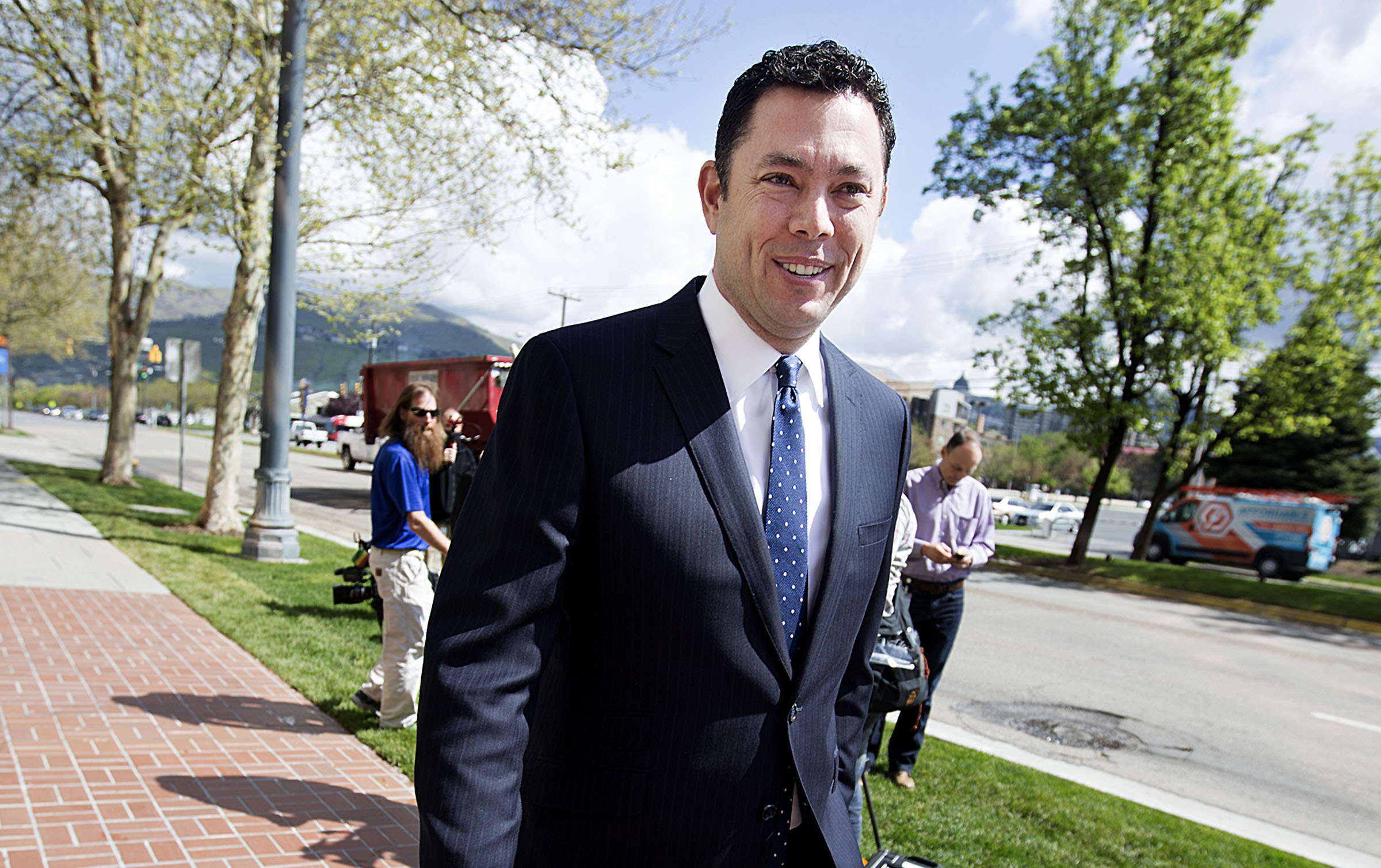
Rep. Jason Chaffetz, R-Utah, announced he won’t seek re-election to Congress on Wednesday, April 19.
“I may run again for public office, but not in 2018,” Chaffetz said in a Facebook post announcing the decision.
Chaffetz, a BYU communications alumnus, said he is healthy and “confident I would continue to be re-elected by large margins,” but that he has “made a personal decision to return to the private sector.”
In a statement, Utah Gov. Gary Herbert said he was stunned about Chaffetz’ decision.
“Congressman Chaffetz has represented Utah in the United States House of Representatives with distinction, and I have appreciated working with him over the last eight years on issues vital to our state,” Herbert said in the statement. “His razor sharp mind, expansive knowledge and gift for communicating will serve him well when he transitions into the private sector.”
Chris Karpowitz, a BYU political science professor and co-director of the Center for the Study of Elections and Democracy, said Chaffetz’ announcement is big and surprising news.
“It throws open this election in a big way,” Karpowitz said. “I think it will now be a fascinating race with likely a variety of candidates, so I certainly think this is big news for the 3rd District in Utah and means a very exciting race.”
Karpowitz said most of the action in the 2018 congressional race will likely be in the Republican primary because the district leans Republican.
Jeremy Pope, a BYU political science professor and co-director of the Center for the Study of Elections and Democracy, agreed that the Republican primary will be very competitive.
“I would expect that lots of people get into that race, where a Republican would be heavily favored to win the general election, and the primary gets a lot of attention and money,” Pope said.
In response to speculation that Chaffetz’ decision is based on preparation for a future gubernatorial campaign, Karpowitz said choosing not to run in 2018 avoids the possibility of a loss.
“There was some discontent in the district with Jason Chaffetz, and so he avoids what would have been an embarrassing loss, and avoiding that loss preserves options for the future,” Karpowitz said.
However, Karpowitz also said Chaffetz has never run a statewide race, and it’s not certain Republican voters would choose him as their nominee.
“In 2020, whether he runs for governor or not remains to be seen, but he would most likely face a very crowded field, so I don’t think we should assume that he is the frontrunner for that race, given the likelihood that there will be other very good candidates,” Karpowitz said, citing Josh Romney and Lt. Gov. Spencer Cox.
Damian Kidd, a Republican candidate for Congress in Utah’s 3rd District, thanked Chaffetz for his service in an interview with The Daily Universe.
“I wish him well in the private sector and I especially am happy that he will be able to spend more time with his family, which is what’s most important,” Kidd said.
I must thank @jasoninthehouse for his service and I admire him for his decision to not become a career politician. I wish him the best.
— Damian Kidd (@damianwkidd) April 19, 2017
Kidd said Chaffetz’ decision not to run for re-election will make fundraising easier for Kidd’s campaign.
Kidd said he wouldn’t speculate on whether Chaffetz will run for higher office in the future.
“I don’t know what’s in the congressman’s mind right now,” Kidd said. “I just admire his decision to limit his term and to not be a career politician, and I think that’s very admirable.”
Kidd said entering the race early, before Chaffetz’ decision to not run, was difficult.
“I entered this race early because I saw some serious problems for our country the congressman is not solving,” Kidd said, citing meaningful tax reform and the gross national debt.
Kidd said he expects more Republican candidates will now choose to run.
“I’d just remind everybody that they’re late for the party, and that if this is what they’re going to do — they’re going to jump into the race when it’s now easy to do — this is how you would expect that they will operate their office in Washington, D.C., meaning they’re only going to make the decisions that are easy to make and do it when it’s easy to do,” Kidd said.
Kidd said voters don’t need leaders who will make easy decisions.
“We need people who are going to go back there and be a leader and make the tough decisions when it’s not easy to do,” Kidd said.
A statement from the campaign of Dr. Kathryn Allen, a Democratic candidate for Congress in Utah’s 3rd District, said Chaffetz’ decision “changes the field but not her motivation.”
This changes the field but not my commitment to bringing integrity to #Congress. #flipthe3rd #DrKathie https://t.co/LYLDoy1YP1
— Dr. Kathie Allen (@kathrynallenmd) April 19, 2017
“We’re incredibly optimistic and we’re going to continue the hard work,” Allen said in the statement. “We look forward to the next stage of this extraordinary campaign.”




